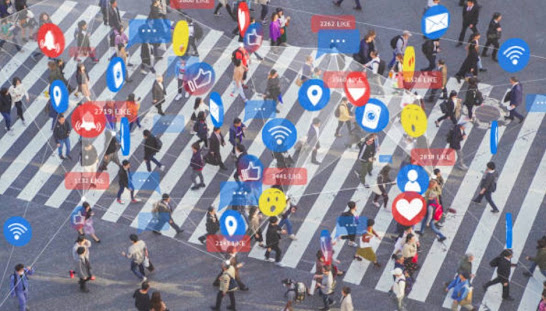The Influence of Social Networking Sites on Society
The extensive use of cell phones and better Internet connectivity has influenced our relationships, behavior, and society through social media networking sites. We now anticipate fast and efficient communication and access to a diverse range of content. Social networking sites like Facebook, Instagram, and LinkedIn are popular platforms for sharing photos and videos and connecting with others. Niche networks like Classmates.com, Flixster, Patreon, and Medium have also gained popularity. Connecting with old classmates on Classmates.com, watching movie trailers on Flixter, supporting content creators on Patreon, and sharing ideas on Medium have all evolved to cater to a diverse society and help people form relationships with like-minded individuals. With fierce competition in social media, platforms must offer distinctive and inventive features to appeal to and retain users (Tassi, 2012).
Ethics and law have raised concerns about mental illness, misinformation, and data security. Social media exposes teenagers to unrealistic photos, and some technology leads to isolation (McLean Hospital, n.d.). Misinformation has wrongly targeted the Chinese population over COVID-19, causing mental health issues. Chinese-American families have experienced increased sadness, anxiety, and stress symptoms due to racist attitudes (Ruiz, 2021). Moreover, Google's software update caused a security breach, exposing the personal information of 52.5 million users (Dave et al., 2018).
Our use and management of digital platforms determine whether social media is beneficial or harmful. Social media has numerous advantages. For instance, when a story requires attention or a cause requires support, social networking sites are the best way to reach a large audience, as not all news channels cover every story (Lile, 2023).
TEDx Talks: Social media isn't bad: you're just using it wrong
References
Dave, P., Panchadar, M., and Vengattil, M. (2018, October 8). Alphabet to shut Google+ social site after user data exposed. Reuters. [Retrieved on 2023, August 8]. https://www.reuters.com/article/us-google-data/alphabet-to-shut-google-social-site-after-user-data-exposed-idUSKCN1MI1WM
Lile, S. (2023, August 4). Complete History of Social Media: Then And Now. Small Business Trends. [Retrieved on 2023, August 11]. https://smallbiztrends.com/2023/08/history-of- social-media.html#The_Future_of_Social_Media
McLean Hospital. (n.d.). The Social Dilemna: Social Media and Your Mental Health. McLean Hospital. [Retrieved 2023, August 20]. https://www.mcleanhospital.org/essential/it-or-not-social-medias-affecting-your-mental-health
Ruiz, R. (2021, June 27). When you become the target of racist disinformation. Mashable. [Retrieved 2023, August 20]. https://mashable.com/article/covid-19-disinformation-anti-asian-racism
Tassi, P. (2012, April 16). Six Months Later, Google Plus Still Doesn't Add Up. Forbes. [Retrieved on 2023, August 11]. https://www.forbes.com/sites/insertcoin/2012/04/16/six-months-later-google-plus-still-doesnt-add-up/?sh=2302f1b2b0ee
TEDx Talks. (2022, November 1). Social media isn't bad: you're just using it wrong [Video]. YouTube. https://www.youtube.com/watch?v=CxCsk-rvfTQ



Comments
Post a Comment